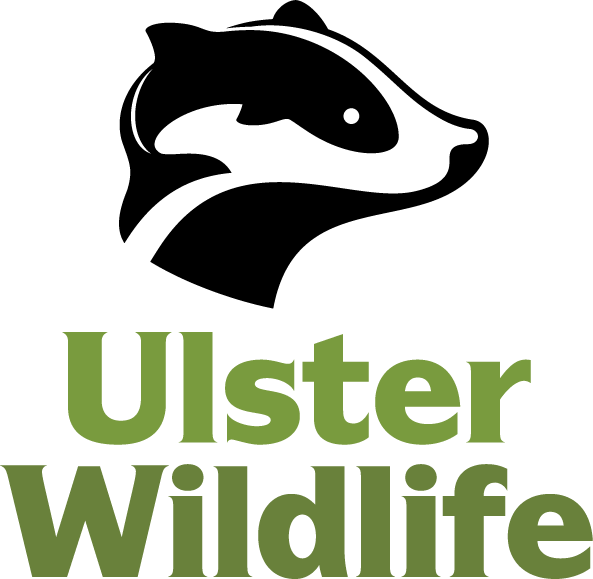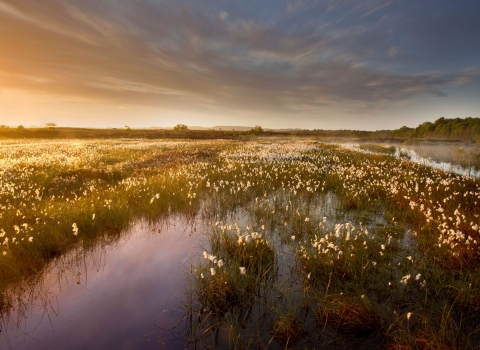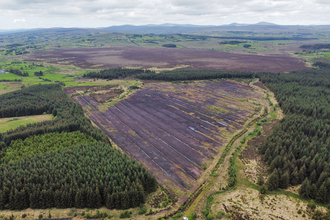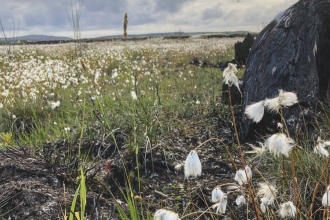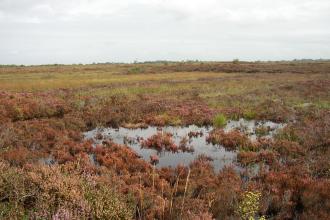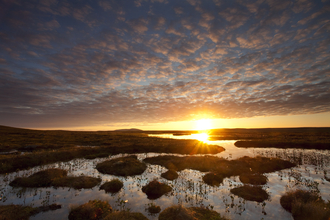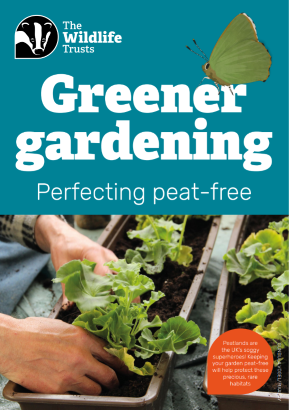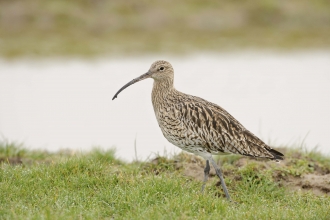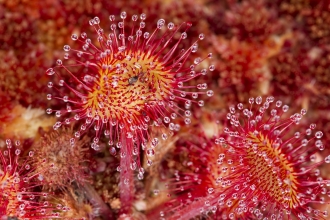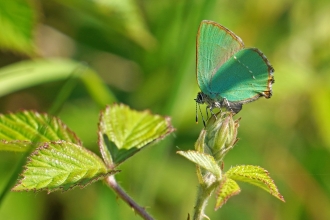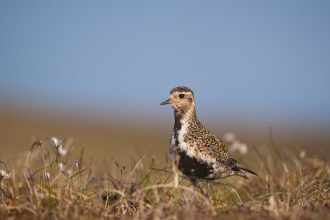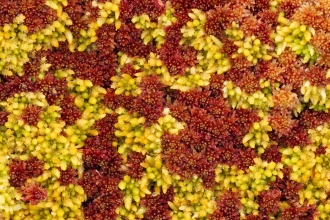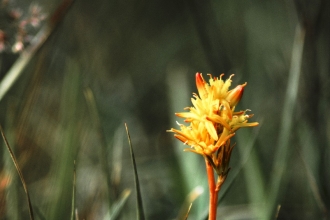In Northern Ireland, while semi-natural peatlands only cover 12% of the land area, they account for 53% of the soil carbon pool, illustrating their significance in mitigating climate change.
Why are peatlands important?
Peatlands are a unique part of our natural environment, home to a host of specialist plants and animals found nowhere else. They provide food, shelter, and breeding habitat for many nationally and internationally important species, including birds such as hen harrier, curlew and golden plover and insects such as the large heath butterfly.
Peatlands cover 12% of the land area of Northern Ireland, more than double the area under trees and store huge amounts of carbon in their soils. Healthy bogs provide us with clean and drinkable water - 70% of the UK's drinking water comes from upland catchments, many of which are covered in blanket bogs – and act as giant sponges, helping to reduce flood risk and soil erosion.
Peatlands also preserve some of the oldest and most fascinating archaeological remains - roads, settlements, monuments and even bodies. They are national treasures and humans have gained enjoyment and benefit from them for generations.
However, over 80% of Northern Ireland's peatlands are damaged and in poor condition, as a result of turf cutting, drainage and overgrazing. This has devastating consequences for nature, people, and the climate. Damaged peatlands also release carbon into the atmosphere, rather than storing it. That's why restoring peatlands at scale and at pace is so important to ensure the multiple benefits peatlands provide are protected and enhanced.
Over 80% of Northern Ireland's peatlands are damaged and in poor condition, as a result of turf cutting, drainage and overgrazing. This has devastating consequences for nature, people, and the climate.
What we're doing
As well as managing our own peatland nature reserves, we are restoring a host of wider sites across Northern Ireland that are important for their peatland habitats and species through the DAERA Environment Fund. These range from the vast blanket bogs of Mullaghcarn Area of Special Scientific Interest (ASSI) in Co Tyrone, where hen harriers and red grouse can be found, to the huge carpets of sphagnum moss on Garry Bog Special Area of Conservation (SAC) in Co Antrim.
We work with a range of stakeholders including Forest Service Northern Ireland, Northern Ireland Environment Agency, private landowners and farmers to improve peatland landscapes across the country. We are not only delivering essential restoration works on the ground but we are also building a pipeline of restoration sites and collecting vital data to develop plans, so we can hit the ground running when further funds become available.
This work builds upon our experience and expertise gained as a delivery partner in the EU-funded Collaborative Action for the Natura Network (CANN) project, where we delivered peatland restoration across some of Northern Ireland's most important sites for nature.
